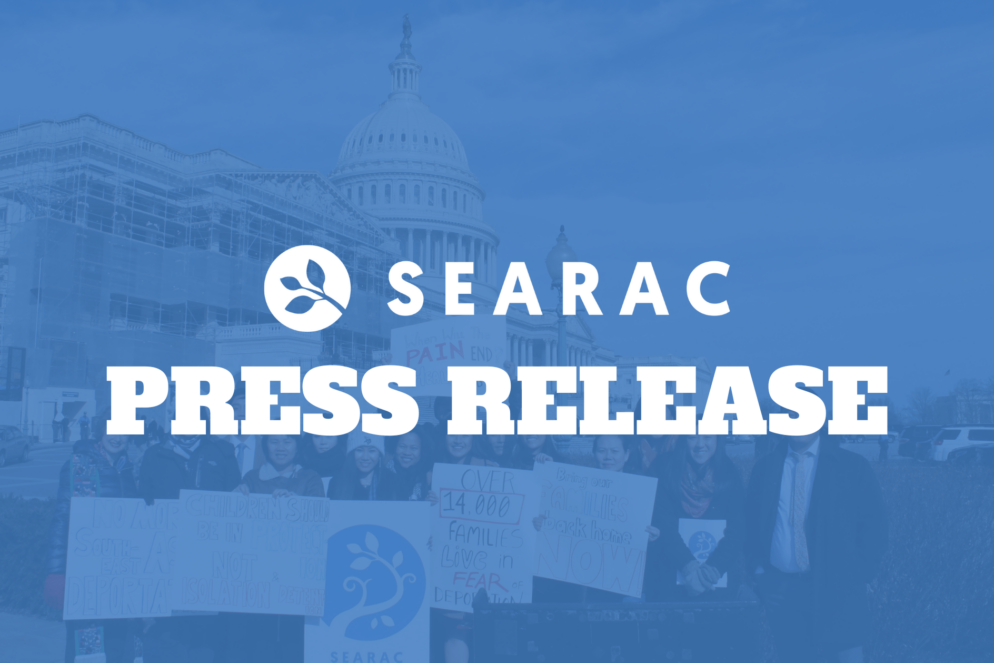Washington, DC – On the one-year anniversary of the violent, racist attacks at three spas in Atlanta, GA, that took the lives of eight people, including six Asian American women, SEARAC joins our communities in remembering this senseless act; reflecting on the increased violence that Asian American women, in particular, have faced during the COVID-19 pandemic; and mourning the Atlanta victims as well as the hundreds of other victims of racially motivated, anti-Asian violence over the past year.
Since the onset of the COVID-19 pandemic, Southeast Asian Americans and other Asian American communities have grappled with the effects of xenophobic, racist language from our elected officials, harassment, and violence, while also navigating more than two years of pandemic-related losses and lockdowns. We are encouraged by the ways that government agencies have come together to fund the community-based organizations led by and serving Asian American and Pacific Islander (AAPI) communities, such as the historic investments in AAPI communities in the California and New York State budgets. However, violence against Asian Americans is deeply entrenched in our nation’s history and present. The best way to honor the lives impacted by anti-Asian violence is greater recognition, investment, and support of the needs of Southeast Asian Americans and other AAPI communities.
“On this incredibly painful anniversary, we acknowledge the lives lost in the Atlanta spa shootings and the family members, friends, and communities impacted by that event,” said Quyen Dinh, Executive Director of SEARAC. “Today, one year later, Southeast Asian Americans continue to navigate the fear and violence of rising anti-Asian hate, including recent murders in New York City and Albuquerque and a brutal attack on an elder in Yonkers. We demand investment into community-based and community-led solutions. We keep us safe, and it is well past time that our federal, state, and local governments fully supported AAPI health, safety, and healing.”

